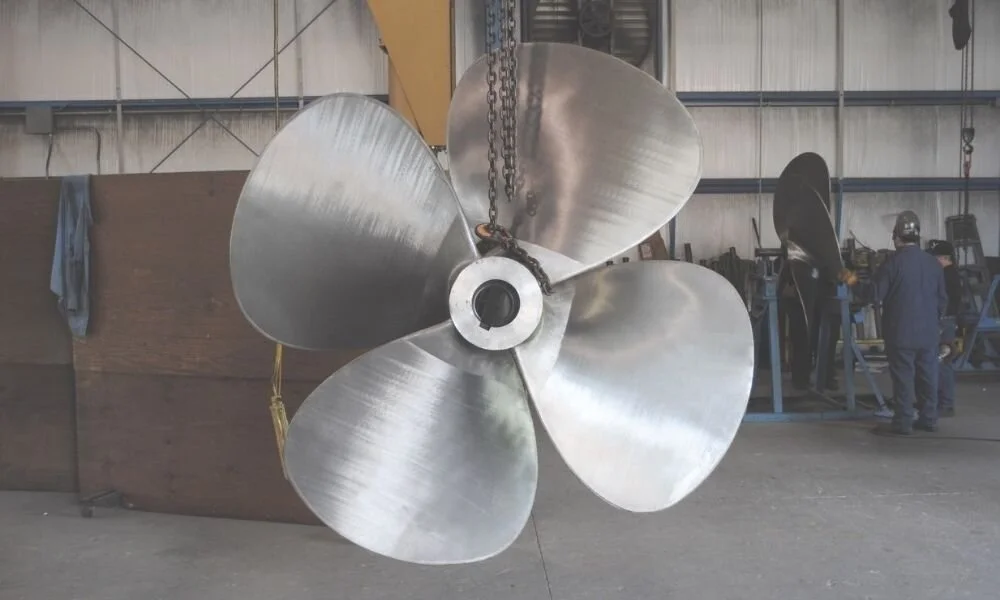How To Select the Proper Boat Propeller
Propellers are one of the most important components on a boat. And it’s the one component that can easily improve your work boat’s performance. Selecting the correct propeller is critical to getting the best efficiency and getting the most life out of your boat’s powertrain. We’ll examine how to identify any potential issues that may call for a new propeller. Let’s get started learning how to select the proper boat propeller.
Identify Shortcomings
If you’ve purchased an existing work boat to add to your fleet, you’ll spend some time getting to know the boat. There are a couple of common problems with propellers that have been incorrectly sized. The first is a boat that does not reach rated RPM. In this case, either pitch or diameter or both need to be reduced. If your boat’s engines freely reach rated RPM and rev beyond that point, you’ll need to add pitch or diameter. If adding diameter is preferred, make sure that the resulting modification leaves enough tip clearance between the propeller and the hull.
Propeller-Induced Noise
Perhaps your boat operates in the correct RPM and speed range for the application, but you have problems with noise, vibration or both. This can come from a number of things, but we’ll discuss a couple of the more common causes. The first is cavitation caused by overloading the propeller blades. If the blade area is insufficient for the power input, this can cause cavitation that can be felt in the form of vibration. It can also be noisy, which leads to diminished crew comfort. In addition to cavitation, damage to a propeller can cause an imbalance in the rotation of the propeller which can also lead to vibration and noise.
A professional propeller shop can help determine if the propellers in question are damaged. If they are in good condition, it’s likely that the propellers have been incorrectly sized. If that’s the case, a new set of propellers may be the best option and the propeller shop will help you decide how to select the proper boat propeller.
Propeller Materials
Inboard propellers for work boats and recreational boats typically come in one of three different alloys. Manganese bronze is the most inexpensive of the three. It is the softest, so impact is a concern. However, these propellers can be repaired somewhat easily. Nickel aluminum bronze is the middle-of-the-road alloy in terms of cost. It’s the hardest of the three, so it can withstand impact better. However, if it does strike an object hard enough, the blade could potentially break off rather than bending, like the other two alloys would do. The costliest material is stainless steel. This alloy is preferred in conditions that are less-than-favorable due to its resistance to damage as well as its repairability should damage occur.

